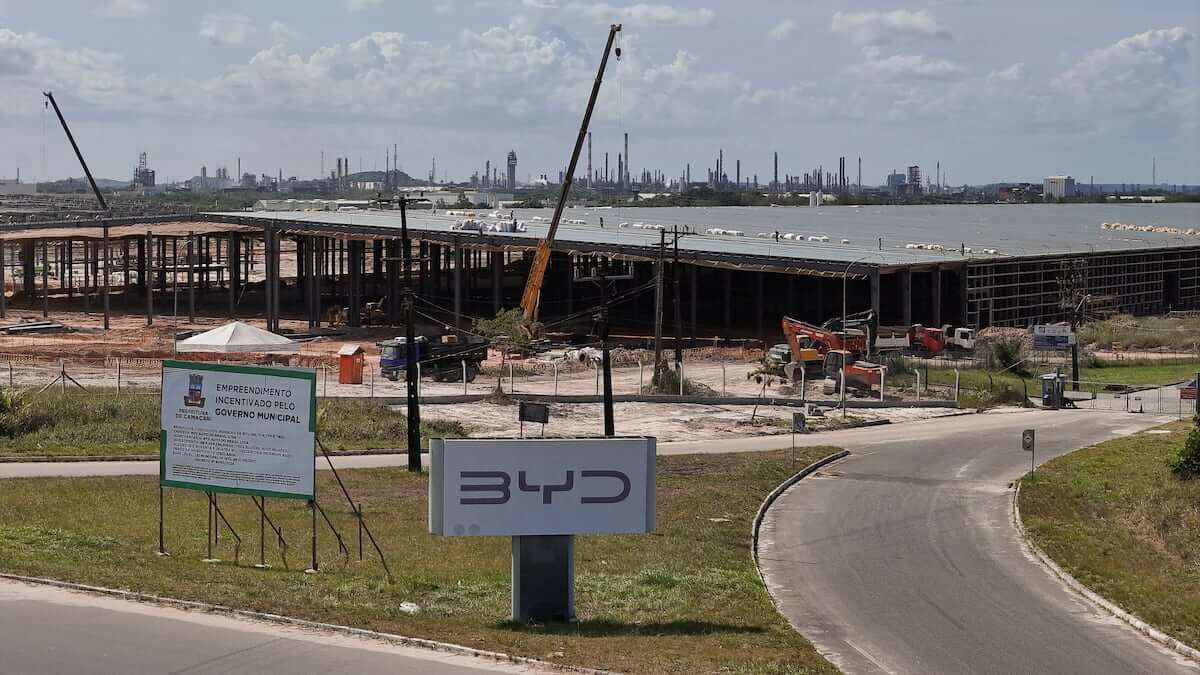China’s Expansion in Latin America: Examining the BYD Case in Bahia
Photo: El País / Joa Souza (Reuters).
The construction of BYD’s electric vehicle plant in Camaçari, Bahia, Brazil, stands as a symbolic project of China’s growing influence in Latin America and its efforts to solidify economic transformations in the region. Scheduled to begin production in March 2025, the plant represents not only a strategic investment projected to create up to 20,000 jobs by 2026 but also a symbolic shift as it fills the void left by Ford’s withdrawal from Brazil in 2021. With an initial production capacity of 150,000 vehiuction under conditions described as akin to modern slavery. The accusations included excessive working hours, unsanitary living conditions, confiscation of passports, and other lacles in its first year, BYD aims to double this output by the second year, positioning itself as a key player in the Latin American market, where it competes directly with Tesla for global leadership in the electric vehicle industry. This project also aligns with Brazilian President Luiz Inácio Lula da Silva’s goals of reindustrialization and sustainability, enhancing Brazil’s green credentials.
However, the project’s progress has been overshadowed by serious labor exploitation allegations. In December 2024, inspectors from Brazil’s Ministry of Labor rescued 163 Chinese workers involved in the plant’s constrbor rights violations. The incident, attributed to the contractor Jinjiang Group, drew strong criticism in both Brazil and China, where the accusations were seen as an attempt to harm bilateral relations. In response, BYD stated it had severed ties with Jinjiang Group, although the scandal led to the suspension of temporary work visas for BYD employees in Brazil.
Beyond its economic significance, BYD’s plant represents the intensifying geopolitical competition in Latin America between China and the United States. While China strengthens its position through infrastructure investments like the recent Chancay Port in Peru, Brazil seeks to balance its foreign policy to attract investments without alienating any global power. The Beijing-Brasilia relationship, marked by mutual interest in advancing strategic projects, now faces challenges stemming from this incident, which highlights the tensions between rapid economic progress and social and labor standards. The hearing scheduled for January 2025 with BYD and Jinjiang Group will be critical in determining the next steps and evaluating the broader implications for the expansion of Chinese companies in the region.
Main Source:
BYD en Brasil: del desembarco triunfal chino a un escándalo de semiesclavitud – El País
Related News:
Authorities Report Labor Abuses at BYD Factory in Brazil
BYD Sends First Trains for São Paulo Monorail
Chinese auto manufacturer BYD to develop pilot project in Colombia
You may be interested in:
Encuentran trabajadores chinos en “condiciones similares a la esclavitud” en obra de BYD en Brasil – CNN en Español

